|
Writers’ Room is Rowan University’s very own screenwriting workshop for short films, features, and episodic series! Created by Cinema Workshop as a subsidiary for those interested in screenwriting, Writers’ Room is a place where people can table read scripts and give feedback, while also teaching the rules of screenwriting and storytelling, developing upon ideas of fellow writers and their projects, and giving a chance for members to act out a multitude of characters from these scripts. Ever since its creation, Writers’ Room has been one of the club’s longest running workshops. I had the opportunity to meet up with the current co-runners of Writers’ Room, Brett Allen and Juliana (Jay) Oliveira, to ask them some questions concerning their experiences, histories, and personal favorite moments while being a part of Writers’ Room and seeing how it grew since they first joined. What's your name, year, and major, and what initially led you to Writers' Room? Brett: My name is Brett Allen. I’m a senior Radio, Television, and Film major, and I am one of the co-runners of Cinema Workshop’s Writers’ Room. To put into perspective, I’ve been part of Writers’ Room when it was temporarily called “Writers’ Zoom”. All jokes aside, it was my Freshman year that I joined both Cinema Workshop and tried to attend as many sessions of Writers’ Room as I possibly could. Then at the end of my Freshman year, I was elected as one of the new co-runners of Writers’ Room with my friend and alumni, Ethan Strohm. Ever since we started running Writers’ Room, the structure of it changed almost immediately. Whereas Writers’ Room prior was very casual on bringing in scripts and more focused on viewing television and film to study great writing, our Writers’ Room set bringing in scripts as a must, holding table reads and giving feedback. It wasn’t all there yet, but the soil was now laid out. After another election, I remained as one co-runner with a new one to work with, my friend (and also Ethan’s friend) and also alumni, Daniel Latch. Where the soil was first laid, Dan and I grew it together, setting into motion what Writers’ Room would be today; a well oiled machine manned by the folks that would bring in all their stories, talents, and ideas to the table. At the end of the year, we not only created a guidebook for future co-runners to follow and edit, but the election process for co-runners now became individual interviews, where the current co-runners and an E-Board member of Cinema Workshop chose a new co-runner instead. Since I still had one more year left, I had the pleasure of seeing this process through, and choosing my new co-runner, my friend (and not alumni yet!), Juliana Oliveira (or just Jay for short), the first Writing Arts co-runner of Writers’ Room. She has done nothing but carry that same talent and efficiency that Ethan and Dan brought to the table, and I can’t give her anything but praise. Today, Writers’ Room is vastly different from when it initially started, but it has definitely grown, and I have been more than honored to see it blossom into something greater in the three years I’ve been a co-runner. Jay: My name is Juliana Oliveira (but everyone calls me Jay). I’m a sophomore Writing Arts major, Film and TV Studies minor, and I am one of the co-runners of Cinema Workshop’s Writers’ Room. During the process of applying for college, I randomly came upon my desire to pursue a career in the film industry. At the time, I had no idea why or what I could do, but it was something that I just needed to try. I started out going to Cinema Workshop’s sister club, RTN (Radio Television Network), but I found that their projects didn’t quite align with my interests. It was there that I was first advertised to Cinema Workshop, and Writers’ Room by extension. I considered the possibility of a career in screenwriting; it combined two of my major interests at the time. But I had yet to actually gain experience in screenwriting. So, I started attending Writers’ Room. Being around all these wonderful creative people and seeing first hand how to pace and format scripts allowed me to enter the screenwriting landscape for the first time, and discover that it was just another genre with which I really enjoyed working. I have always been a writer, so I had simply found another skill to add to my toolbox. It just so happened that it was a skill that I really enjoyed using. What does the creative process mean to you, and how has that connected with Writers’ Room? Brett: For me, the creative process is a great love/hate relationship; you learn to hate what you love, and love what you hate. It’s a constant battle of questioning, re-drafting, throwing a multitude of ideas at the wall to see what sticks, what doesn’t, and what you want to rip off the wall and stomp into the ground. If there’s anything that this process has taught me about writing, it’s that nothing will work if you don’t work with yourself and with others. And that’s what first led me to join Writers’ Room during my Freshman year. Jay: For me, the creative process is never the same, whether you’re comparing two people or two projects. Personally, I have never had the same creative process twice among all my projects. What I think is most important about the process, and something that I lacked in the early days as a writer, is a community aspect. Peer review is so beneficial for all creative work, and this is what drew me to Writers’ Room in the first place. I had heard of Cinema Workshop previously, but once I found out that they also hosted a writing workshop, I was hooked. I was in search of a place where writers could share their work and receive meaningful feedback, and Writers’ Room was just the place. Do you have any particular moments that stand out to you since being in Writers’ Room? Why have they stuck? Brett: One moment that has really stuck with me in Writers’ Room, and it’s something relatively recent, was getting a special guest to speak not only for Writers’ Room, but for Cinema Workshop in general. Over the summer, I created an account for this website named Stage 32; a social media/forum site that catered to sharing thoughts, ideas, and more about every bit of the film process. It’s a place that I made a multitude of great connections with, and one of those connections was Sabrina Parra, a self-employed script consultant that worked in the industry. During the late summer and into this past Fall semester, we discussed our pasts, why we decided to pursue screenwriting and script consulting, and then I told her about Writers’ Room and Cinema Workshop. I can’t underestimate how gracious she was in wanting to lend her time to call in for Cinema Workshop and give the members the opportunity to ask her anything about her career, the film industry, and what advice she had to offer. Although this was an event that happened more or less outside of Writers’ Room, it was still an event attached to Jay and me that we had the capability to carry out on our own and bring to the forefront of Cinema Workshop after months of preparation, coordination, and scheduling. It’s something that I don’t think I would have ever considered if I either didn’t take the route that I did, or never became an active participant and co-runner of Writers’ Room. Having Jay by my side for this event tremendously helped me out in alleviating pressure, with the reassurance that it would all go well with our questions prepared, are times aligned, and the members there to take in all that Sabrina Parra had to say. For me, knowing that outside of scripts, we’re able to make something like that happen, just showed me how much Writers’ Room has evolved and what more it can do outside of our meeting times. Jay: At the end of my first semester as co-runner, I was able to sit at the front and dictate the ideas of the members as we wrote our group script. When I wasn’t typing, I was looking out to the room to see who was raising their hand, or who might have been thinking of an idea. Surprisingly, at some point, everyone had something to say. It was the kind of unity and community that makes Writers’ Room what it is, and it was almost cathartic to experience that first hand. There was no pressure, and everyone seemed to be having a good time doing something creative with the people they had bonded with throughout the semester. It’s the environment that I hope to be able to continue to foster during the remainder of my time as co-runner. What is a script you’ve read in Writer’ Room that you haven’t gotten out of your head? Why? Jay: We have seen the pilot episode of Blood Chronicle by Riley Murray go through several drafts in Writers’ Room, and although it’s been a while since I’ve had interest in a complex fantasy story, this particular script, introducing a fantastical world and the story of a young man becoming unwittingly involved in a plot to kill god, kept me hooked through every draft. I was excited to see it every time, curious about what feedback was taken and used, and what next steps might have possibly been taken. Riley has been one of our most avid attendees, and his dedication to both feedback and submissions is incredibly admirable. I hope to see the second episode of Blood Chronicle soon so that the story may continue. Additionally, I have to shout out Starchild by Grace Fox and Juliette Hunter. The very first Writers’ Room I attended was the week of Halloween during my freshman year, and because the projector wasn’t working, the hours were dedicated to helping Grace and Juliette brainstorm ideas for their script, in which the titular character traverses the universe in search of her mother, meeting friends and learning lessons along the way. That was when I realized that Writers’ Room wasn’t dedicated to the peer review part of the writing process; it could be so much more. I am proud to say that I was there to see that script being brainstormed, all the way through to its production. I watched it come to life through nearly every step, and I am so proud of everyone involved and the final result. Brett: There have been many brilliant scripts brought into Writers’ Room over the years, and it’s truly hard to only choose one that’s stuck with me. If I’m permitted, I would like to highlight three pieces that have stood out to me during my tenure. The first piece that comes to mind is a short script called Cherry Sorbet (written by Daniel Latch), “…a young man who observes how death permeates life around him in order to face a critical juncture”. Aside from being set in only the walls of a convenience store, Daniel's greatest strength is subtlety, carefully laying out the interactions and events that occur in the store which reflect the protagonist’s unspoken turmoil throughout the story. It’s visually brilliant, and the characters that surround the protagonist are wonderfully written to stand out on their own and indirectly assist the protagonist to come to his decision. Next comes Starchild (written by Grace Fox and Juliette Hunter), about the inventive and curious Starchild who travels the stars in search for her mother, meeting new friends and enemies along the way. Before it was produced into the beautifully constructed puppetry feature for Cinema Workshop, it started out as an amalgamation of ideas on a whiteboard in Writers’ Room. In an odd sense, it was the first script that I really saw come to life in Writers’ Room, starting out as a string of ideas big and small, and later formed into the small, yet grandiose script which captured my attention not only for its inventiveness, but heart as well. Then finally, there is All the World’s a Stage (written by Devin Burton), an episodic series about the hijinks and missions of a theater company heist crew. Technically it was multiple scripts that Devin brought into Writers’ Room, but each episode exemplified great character writing, a consistent flow of action and comedy, accented by that small blend of discomfort and world building that took it all home. The show essentially became an insider part of Writers’ Room, where every instance someone asked what they missed in Devin’s newest installment, it would most likely be met with a, “you had to be there for it”. Even with these three scripts as highlights, I can’t stress enough how creative every member in Writers’ Room is. There’s no script left unturned or forgotten, and I know I’ll be checking in on the members of Writers’ Room and asking how far along they’ve come with their projects. What hopes do you have for Writers’ Room and for Cinema Workshop in the future? And how would you wanna go about the next step towards that? Jay: As much as I love the way that Writers’ Room works now, I hope that in my final year, my new co-runner and I can implement some new practices to allow our members to get more personal attention, even if they aren’t writers or submitting scripts. Presentations are great, but it would be even better if we could put them into practice. Writers’ Room isn’t a class, but it is a workshop, and I feel as though the members should be able to come out of it with a new skill or new knowledge about screenwriting. As for Cinema Workshop, I definitely hope my new co-runner and I can create a more symbiotic relationship between Writers’ Room and CW. As a writing workshop, we could be so much more involved in the pre-production process, especially for the fests in the Fall semesters, so I’m hoping to figure out a way to better the process for those smaller productions. Brett: If there’s anything that I would like to leave behind for Writers’ Room and Cinema Workshop, I would say to not give up on each other. Community, kinship, and kindness go a long way for people, and that’s what Writers’ Room and Cinema Workshop should be built on and uphold. I’ve had the privilege to be a co-runner for three years, and a Cinema Workshop member for four, and I can’t stress enough how the connections and friendships I’ve made along the way helped me realize the potential I have, as well as recognizing the potential others have as well. We’re all different in the ways we look, the ways we talk, the ways we think, and that’s something that everyone should embrace. Don’t cast each other aside and turn a blind eye to those who aren’t of the same mindset or experience. Without community, without people, there is no Writers’ Room, there is no Cinema Workshop, there is nothing. Cast out your lifebuoys and keep track of your crew; when a ship needs to make it back to shore, we need all hands to set sail in the right direction. Is there anyone specific you’d like to shoutout for your time at Writers’ Room? Brett: There are two people I’d like to thank for this… okay, it’s actually a group of six people and a person separate from Writers’ Room but bear with me on this… Okay before the group and the separate person, let me thank Writers’ Room first. To all the folks that have come in and out of Writers’ Room, those new and old, those who are there actively or only stopped by once, I’d like to thank you all. Without the people, there is no Writers’ Room, and it’s because of the people that I had the pleasure of co-running, the pleasure to see all of your passions and creativity on paper and on screen, and for bringing nothing but laughter, tears, and fun to my tenure here at Rowan. Alrighty, now onto the six people. Kyle Foor, Taylor Drake, Joe Pidgeon, Ethan Strohm, Daniel Latch, and Jay Oliveira, thank you all. Without any of you, Writers’ Room would have never been my second home, the place that I would learn, teach, and love the ropes of screenwriting; to take a deeper look at what’s between the lines and how it translates onto the big screen. I feel I sound like I’m on my deathbed writing this out, but you all mean the world to me, and have brought a greater appreciation not just for screenwriting, but for filmmaking and teaching as well from what you all have given to me. And lastly, I would like to give a great thanks to one of the professors here at Rowan, someone outside the RTF major; Professor Fera. Professor, if you’re reading this, and I’m sure I’ve expressed it to you before, but you have no idea how much you truly helped me during my Freshman year here. I was stressed out of my mind, juggling online schoolwork, personal life, and my first two shoots with Cinema Workshop all in one semester, and I was uncertain as to how I was going to get out of it with good grades and a good mindset. I felt the final straw that was about to break my back, but you caught it just before it did. You helped me see that asking for help was okay, that admitting that I couldn’t handle all that was on my plate wasn’t a sign of defeat. Maybe it was also the fact that your son is also in film that brought on another level of understanding, but nonetheless, you truly uplifted me from the hardships of not only being in a new setting, but a new mindset and work environment as well. Whether it be College Comp. II or Writing Children’s Stories, if I had to take those classes over again with you as the professor, I gladly do it in a heartbeat just for your wisdom and virtuous educational skills. Jay: If I gave every name, the list would go on forever. Firstly, I’d like to thank my predecessor, Daniel Latch, who introduced me to Writers’ Room in the first place. He helped to create the environment that I came to love so dearly, and encouraged me to try out for co-runner as well. I want to thank him for the opportunity, and commend him for the legacy he left behind for me to fill. He’s a wonderful writer, and I hope to see his name on a world-famous script in the future. Secondly, I’d like to thank my current co-runner, Brett Allen, for welcoming me into the position. Not only was it an honor to be chosen for co-runner, but it’s been wonderful to work alongside Brett. He is insightful, accommodating, and he has made the transition into the position so much easier for me, so as excited as I am to continue with my new co-runner, I will certainly miss him, and I wish him the best. Finally, I’d like to thank all the active members of Writers’ Room, the people who are so adamant about showing up every week, the people who are confident enough to share their scripts, and everyone who has ever participated in Writers’ Room. It has been so fun reading their scripts and seeing all the ideas that they have, and nothing has made me happier than to watch them deliberate on a script and bounce ideas and feedback off of each other, forming bonds all along the way. I have truly had the best time co-running this workshop for everyone that attends, and the Room wouldn’t be the same without them. Cinema Workshop’s Writers’ Room meets every Thursday in Bozorth Hall in Room 118 from 7:00 PM to 9:15 PM. You don’t have to be a writer to join Writers’ Room! We welcome all voices, whether you just want to give feedback, voice characters, or meet new people. Thank you again to Brett and Jay for the chance to interview them, and we look forward to seeing you all there. Armaine Dela Cruz
0 Comments
To know and understand Sara, the child storyteller, who became Sara Dudo, the poet and educator, is to see the world as she might see it – like a journey filled with wonder with peaks, valleys, and every possible terrain in between. Poetry is like that; the writer brings the reader along on a journey to delve into one’s soul. Professor Sara Dudo paints pictures with words. She looks at the world with what can almost be described as a camera’s lens. In her writing, nature is important to her, especially when compared to the body. To imagine her thought process, one might look at some of the photographs she took when she and her husband Ray lived in Las Vegas at the end of 2021 until July 2023 when they moved back to New Jersey. It is at such a place, at the intersection of the human body and nature’s landscape that Dudo found a space for her art. Her poetry dances off the page with a simultaneous ability to pierce the heart with its stark, raw vulnerability and hidden truths. The shared experience between author and recipient can be as intimate as it can be life changing. For example, in her poem "Devotion" the opening line creates imagery that glistens, while it also immediately sets the piece into a specific mood and place. By the last stanza, the poem hits you with the theme of deep familial bonds and an image of a mother and child that plays out almost cinematically.  A flutter of wings, silver echoing shimmer reflects the plastic of the hothouse, a tan moth whirlpools in a browning tub of water. - An excerpt from “Devotion” by Dudo Dudo grew up in the small town of Estell Manor, New Jersey. As a child, she wrote stories and gave them to her teachers. After high school, she enrolled at Stockton University. Initially, she began as a fiction writer until she took an advanced poetry class. It opened up something in her that couldn’t be ignored and would begin to inform her relationship with life and the development of her craft. “It didn’t take very long for me to realize: I think this is a little more so me,” says Dudo, “not that I don’t write stories now. I still love going into different genres. I really like hybrid work too, where you write a little poetry here, a little prose there. So, I like combining things. But I primarily focus on poetry.” By the time she was an upperclassman, one of her professors told her that her work was reminiscent of the award-winning poet Larry Levis and that she should buy his book. Dudo had not yet heard of Levis, but on the advice, she quickly went out and purchased Winter Stars, which deals with the subjects of acceptance and loss. “I bought his book, and I read it,” says Dudo, “I must have read it, I don’t know, twenty times, just taking extensive notes because I was just like this is awesome. This is exactly what I want to do….What I really like about his style. At times it was gritty in content, but it still talked about something that was so beautiful.” But first, there was the beginning of a lovely romance. At Stockton, Sara became aware of fellow student Ray Dudo from Mays Landing and felt an immediate attraction. She said, “He was a really cute guy who played guitar.” Soon after the two had been introduced by a mutual friend, Sara discovered she was becoming more in command of herself – a person of purpose. Normally, she played it safe. But she began to take risks. She became a radio DJ, joined the school’s track-and-field team with no prior experience, and then there was that cute guitar player she couldn’t get out of her mind. She recalled, “We had a Shakespeare class together my senior year, and I told myself at the end of the class: on the last day at our party, I would make him a mixed CD and inside of it, I would put a 3-page letter telling him that I liked him. I did that,” she adds. She gave Ray the letter in December. For several months, she would bump into him occasionally. He said nothing about the contents of that letter. Then came Spring. “I used to work at a flower farm in Vineland, New Jersey,” says Dudo, “I’d worked there for about three to four years at that point. I was about to go back in the spring and work there through the summer. He heard that they were hiring, and he went and got a job. He worked there for about a month with me. I wasn’t sure if he was doing it because he was taunting me or if he liked me. And then, he finally asked me on a date.” After Ray took the job, she began to notice he was losing some weight, but she assumed it was from the cardio from all the walking on the job. Then, everything changed. “We started dating in June of 2018, and he was diagnosed in August of 2018,” says Dudo about Ray’s diagnosis of Hodgkin's Lymphoma, at which time he immediately began treatments. Both Sara and Ray continued their undergraduate studies. Ray was still living at home, and so his mother was a huge help to him. Sara accompanied him to as many of his bi-weekly chemotherapy treatments as possible. She also visited him daily to encourage him and cheer him on. When it was discovered that the chemo didn’t really work, he did radiation therapy in the spring of 2019 until about May. Also in May, Sara and Ray walked at graduation together. Relief came in June of 2019 when he was cleared, and radiation seemed to have worked. They celebrated in August of 2019 by embarking on a cross-country road trip, living out of their car - having a wonderful time. Then, their world was about to face challenges once again. During spring of 2021, the cancer returned. This terrible news came right as the couple was planning their wedding. At that same time, Sara was sick with autoimmune troubles. Still, they were wedded in June of 2021. In July, Ray went in for a complete stem cell transplant. Sara became his full-time caretaker. Luckily, this treatment would be a success, and in the Fall of 2021, he was cleared of cancer. The experience infused Dudo’s writing, creating some of her most personal work to date embodying reflection and introspection on health. “I ended up writing a series of elegies,” says Dudo, “instead of a traditional elegy of someone passing, a kind of an elegy to these ideas of youth and of things not being the same. The idea of parting. In a stem cell transplant, the chemicals and the chemotherapy that the body undergoes, it kills every single stem cell in the body, and it produces brand new ones based on the infusion that they have to get. So even elegies to the stem cells that would have to be destroyed, stem cells that I felt we shared in experience being together. I ended up doing a lot of research in the desert, on the desert and the ecosystem and its landscape, and I got really into doing a lot of comparisons between his body and my body with its autoimmune issues.” The couple relocated to Las Vegas beginning at the end of 2021. At the University of Nevada Las Vegas, where Sara graduated with her MFA, she taught Introduction to Creative Writing, College Composition I, College Composition II, and was the course creator and developer of ENG 451B: American Literature II. In July of 2023, the couple moved back to New Jersey. In 2023, Dudo published a micro-poem in the Cincinnati Review called "Remission," in which the complex work beautifully reinforces the focus of the subject, her husband, by the repetition of using his name. The piece balances reference to the side-effects of his chemotherapy treatments, but at the same time, reflects on and elevates specific moments from his childhood. 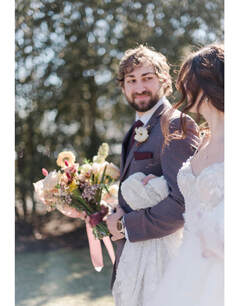 ray the bird in you the jade in you the try in you ray the wren you watched from child window ray the flowering-pear phalanx on Main rounding the haste in you ray your voice ray locked in pink brine ray crystallizing the caramel ray rust water and freeze ray the green grass not green land dry dirt desert landscape in you ray the thin hair too thin for your thickness ray ray the plucking huckleberry mouth invite the pies Mary baked ray the name belongs to you, brown moonrays thousand knive an orange creek a secret bridge herring run ray a thickness to reach in to pinch fish at midnight with a hand ray rays hand an old church two hands makes a cathedral rays Holy Thursday candlelight puncture choral mouth ray the sound of your body dredging bees congregation around purple rhododendron bloom ray the sound of love waiting on brick porch barrier island Italian pancakes a nose full of salt a rose bush somehow stays alive ray. "Remission" by Sara Dudo Posted by Cincinnati Review on June 28, 2023 While the work was perhaps cathartic, the emotional repercussions would be ongoing. “Even if he survived, and obviously I was very happy he was doing well, there would still be a sort of death of the relationship that we had, our youth, of things kind of being what they were and knowing that in the future things were always going to be different,” said Dudo, “so grieving is another kind of shift,” she added. Yet, like in poetry, there have been moments in their narrative of not just shadows, but of lightness and enchantment – like on June 4th, 2021 when the two married at her grandparent’s old blueberry farm. At one point in the day, as the young couple commemorated their relationship and celebrated with the gathering of more than two-hundred friends and family, it began to rain. And like a poem, they clung to each other, droplets from the sky nurturing their union, like words planted on a page. Today, Sara and Ray are busy in their careers in academia. Sara is an adjunct professor of Writing at Rowan University. Last semester, she taught College Composition I at Rowan, as well as a College Writing Intensive at Stockton University. This semester, she is teaching The Writer’s Mind at Rowan. Ray is a busy high school English teacher. The couple enjoys road trips and travels with their dog, Layla. They also have a cat, Mosie. They enjoy spending time with family, which is part of the main reason they returned to the area from Vegas. Still, the wanderlust in them may take them on new adventures, destinations unknown with landscapes that will inform new works.  “Talking about the body and the landscape and the land, at the same time I did a lot of thinking about the land here in South Jersey and how that’s where we grew up. And how our bodies are so interconnected to this land. The root of it is, I was afraid to come back here because, in the desert, we both had a period of health where nothing was really wrong. We were healthy. My body was behaving. His body was behaving. He was doing well after the stem cell transplant and a fear of coming back here to the land where everything has always gone wrong,” says Dudo.  She has some tough emotional memories of growing up in the area, including the death of an uncle who died suddenly and the passing of her grandmother. “I finally could grieve for my grandmother who helped raise me and get distance, enough to see her beauty as well as her shortcomings and how she often pressured me as a child to be a third parent for my brother with Down Syndrome.” There was also some hesitation about how the future would play out. “I was also scared to return to a place where, though I hoped everything would be the same as when we left, I knew my sister-in-law was about to have a baby and my best friend as well, and I was nervous about facing the looming uncertainties of our fertility and the possible pain and physical/emotional turmoil that we might face in trying to move to the “next chapter” to assimilate, in a way, with our family and friends.” Note: Sara Dudo has been published in The Cincinnati Review, The Atlanta Review, The Idaho Review, The Portland Review, Southwest Review, Red Rock Review, and Oakland Review. She is a Pushcart Prize nominee, and a recent “Best of the Net” nominee. In true style of an artist, we can only imagine that Dudo will continue to explore life using her expressive talents for writing words that will form into lines of poetry, images that create lasting impressions, stories that will continue to resonate with readers and honor their own life events with a dignity that comes from one who has reverence for the work. By: Kelly McCarthy
Growing up, I always felt isolated and disconnected from those around me. It was hard for me to connect with my friends on a personal or emotional level. Sure, there was some teen angst involved, but it was more than that. Social interaction wouldn’t come naturally to me, and I felt weird for how I acted and how my brain worked. I didn’t even fully comprehend the things I felt and thought. I just felt disconnected and ostracized, like a stranger to the human race. That experience is where my love for art began.
Art helped me deal with these internal struggles I held. The lyrics of music specifically meant a lot to me around the end of middle school and all throughout high school. Seeing other people express themselves and put the emotions I had into tangible words grounded me from feeling so distant from the world. I was able to put a description on all these different things that I was, and found a connection I had never truly felt through others’ words. “I spent my life weighed down by a stone heart Drowning in irony and settling for anything Somewhere down the line all the wiring went faulty I’m scared s***less of failure and I’m staring out at where I wanna be” “I Just Wanna Sell Out My Funeral”, The Wonder Years These are a set of lyrics that I held dear to my heart when I was in my teen years. These lyrics felt like someone was able to reach inside my brain and pull out all that was within. I felt less alone, less like some oddity – as if someone else had similar thoughts and feelings, and they were able to explain it so simply. The lyrics captured how I felt defected, like something with my brain was made wrong, how I felt stuck with who I was, how I looked at others with jealousy and longing. “With a winning smile, the poor boy With naivety succeeds. At the final moment, I cry I always cry at endings.” “Get Me Away From Here, I’m Dying”, Belle & Sebastian This set of lyrics builds upon this idea of doubting the best to happen – a pessimistic worldview, which I used to find myself in. I don’t know if I can describe the bigger emotion of this writing. It’s this sadness of things ending, even when it's for the better. I often find myself crying to the endings of happier pieces of work, like Hayao Miyazaki movies or love songs. In the world and in my household, growing up made it seem shameful for a man to get emotional as often as I did. Hearing a guy from the nineties sing about crying to endings regardless of their outcome made me feel more secure in my sense of self, and allowed me to grow into a better person. “In a world that I can’t fix With a hammer in my grip, I’m no closer to heaven. I can stay here in the darkness Feels like I’m wandering in circles for days I may never reach the gates I’ll keep walking anyway I’m no closer to heaven” “No Closer To Heaven”, The Wonder Years These lyrics express a dread that bubbles inside me. As an eternal people pleaser, I want to help the people around me, friend or not. I hate to be an inconvenience, and I feel especially terrible when I can’t help the ones I love. It can be very hopeless, but the second set of lyrics remind me that I need to keep moving forward and not let that feeling take over. This moves into a different kind of writing that I think everyone points to as comforting. Motivational writing creates a space that helps you to keep moving forward, keep doing your best, and keep living life to the fullest. Personally, it's always been nice to have a short set of words to repeat to myself whenever I need to pull myself up and out of a dark headspace. “This is not where we belong, But it's where we are right now. Find a spot and settle down.” “Sunny Brixton”, Superchunk This has been the perfect mantra for where I am in my life currently and where I may continue to be throughout the rest of my twenties. Maybe it will take a while to get to a time where I have a successful career, a place to live, and a life with the people that mean the most to me. But that doesn’t mean the time it takes to get there has to be any less enjoyable. I need to enjoy the life I have and enjoy it now. “Time isn’t holding us, Time isn’t after us.” “Once In A Lifetime”, Talking Heads It’s beautiful; it’s simple; it’s comforting; it’s everything to me. It’s these positive affirmations that life will be okay, that all my problems will not be the end of me. Words are able to create such a feeling within me, within all of us. Because writing has that power over us: to inspire, to cradle, to move us. It makes us who we are, as authors and as humans. As I’ve drafted and written this article, I wonder how much of myself comes through not in my words but in words I find solace in. I wonder what your favorite quotes, passages, and lyrics are and if they speak towards the person you are now or at least, the person you want to be. I want to end on what I think is the most important piece of writing I have heard in my life. The atlas of my outlook as I am now. What I always try to keep in mind as I go about my days. And I hope it shows the power writing can have on anyone. The musician, Jeff Rosenstock, wrote the lyrics 15 years into his career, after hundreds of other songs. You will always find new feelings to express and new words to express yourself. Keep writing and write from your heart; it might just touch someone else’s. “And it’s not like the love that they show us on TV, It’s a home that can burn, It’s a leg to freeze. Love Is Worry.” “…While You’re Alive”, Jeff Rosenstock By: Robert Scanlon On February 29, 2024, the Rowan Writing Arts Department was honored to have award-winning author Nana Kwame Adjei-Brenyah on campus for a live reading of his novel, Chain-Gang All-Stars — which was a national bestseller, New York Times’ Top 10 Book of the Year, and a finalist for the National Book Award. Prior to the main event, Adjei-Brenyah held a “fireside chat” Q&A panel with several Writing Arts students at James Hall. All were given a copy of Chain-Gang All-Stars, to which some had already read and came ready with questions concerning the story and others who were just excited for the opportunity to chat with an author like Nana Kwame. Regardless of the classroom setting, there was never a moment where we felt detached from talking, and what stood out to me was the reality of the room — a room full of writers learning from another. While Adjei-Brenyah answered many questions centered around Chain-Gang All-Stars and his previous work Black Friday, he also discussed his writing process and the thoughts, feelings, and habits that coincide with it. When asked about long-term writing, he mentions that the art of creating a novel isn’t about the novel itself but about the smaller pieces — that focusing so much on creating something as long as a novel could easily burn you out. “No one writes a novel. But they did write a bunch of sentences.” Part of the process, he mentions, is understanding how those small foundational pieces matter. “How can I make this sentence matter — how the syllables sound in that sentence? Do they flow? Does it sound like a person? Does it sound like That Person?” When discussing this piece-by-piece way of writing, there was something that personally clicked: that the focus on phrasing, punctuation, and musicality of your own piece are all things that don’t go away as you continue to read and write. (Which is something further stapled by Adjei-Brenyah’s reading of his novel later on.) With writing, Adjei-Brenyah hones-in on habit — that once you keep rolling with a set of words each day as part of a routine, you’ll find your “itch to write”. Writing becomes less like a burden and more of a necessity, grounding you in the process. “Get your mind to get used it.” Moreover, Adjei-Brenyah also touches on his love for the revision process over the draft process. He calls his writing as “superimposing intention” — that if you write with purpose, all you need to do when returning to it is making sure it’s made clearer with every revision. And most of all, emphasizing that fact of simply putting the idea down first and fixing it later. This idea would circle back into his thoughts of approaching novel writing and feeling your finality as part of the intention of your story. Following the fireside chat, Adjei-Brenyah’s main event took place at Boyd Recital Hall, which many students, faculty, and visitors came excited with their love for him and his work. Prior to him coming to the stage, two amazing Writing Arts students and Poetic Justice executive board members Maureen Castle and Mia-Sara King performed their original spoken word pieces. Although their pieces touched on two drastically different perspectives, the both of them stunningly set up the passion in hearing writing come to life. While the pieces themselves already weighed-in with their experiences and their emotions, you felt their intention in the words as they spoke. In other words, it felt much less like a performance and more a showcase of who they are and who they want to be. There was a specific shift from when Adjei-Brenyah walked on stage to when he started reading excerpts within Chain-Gang All-Stars. After a welcoming introduction from co-organizer Amy Woodworth, Adjei-Brenyah was a warm, welcoming presence in himself. But the room suddenly weighed in silence as he began reading — an air that felt different than the person that just introduced himself. Adjei-Brenyah began with the prologue to his book (to which he notes: “always read the prologue”); one that immediately took everyone’s attention whether this is your first interaction to the novel or your one in many. Other excerpts included audience participation of chants and hums that existed in various points of the novel. Being in that crowd, his vision within the words came out of the pages, almost like a conductor at the front of his orchestra or a director leading a table read. There, Adjei-Brenyah immediately made known that superimposed intention he had stated before — that purpose in writing. We can sometimes gloss over novels like they’re textbooks, but hearing everyone hum in unison to a scene that translates to the ultimate defeat in something as unconquerable as the prison system wasn’t just heard but intentionally felt. Following the reading, there was a Q&A held for the larger audience which was moderated by Professor Ariana Tucker. Adjei-Brenyah expanded on story choices within Chain-Gang All-Stars, specifically his deep-dive research into the inherent racism and classism of the American prison system and how it embeds itself into a plethora of organizations complicit in its violence. He also puts into perspective the purpose of making his main character, Loretta Thurwar, a black queer woman. A highlight of the Q&A was in discussing the weapons that she and the other characters used, such as his accident symbols of a hammer and scythe through death and labor that he was originally inspired by the anime Soul Eater. Adjei-Brenyah also expanded on some earlier topics of the fireside chat concerning the writing process and why we write in the first place. One question led to him to discussing very passionately that someone will need your writing even when you don’t think so. He exemplifies that writing is an art that might not create as obvious of a result as something like sculpting, but someone will find the need in it — that someone will need your writing. While it can be easy to discuss about Nana Kwame Adjei-Brenyah and Chain-Gang All-Stars by their successes, what’s more to it is a writer and his book, a person and their story. From both events, students didn't take away the step-by-step process of becoming a successfully known author; they didn't need to because that wasn’t the purpose. Adjei-Brenyah exemplified why personal purpose is all the more important, especially in an art like writing. Just as long as you allow it to find its own finality. Thank you to Nana Kwame Adjei-Brenyah for visiting Rowan University and the Writing Arts Department faculty, staff, and students for making this event. Armaine Dela CruzPound for pound, Avant Literary Magazine is one of, if not, the most invaluable resource a Rowan Writing Arts student has available to them on campus. As the university’s second oldest club, it's been producing collections of undergraduate work each semester for nearly 60 years. For those who participate in either the club meetings or serve on the Executive Board, Avant provides a wealth of experience in giving and receiving criticism as well as seeing how a literary magazine gets made. As an Assistant Editor myself (and Avant’s #1 fan), I’m going to take you inside Avant with descriptions of what we do and interviews with the E-Board.
Firstly, what’s it like to go to an Avant meeting? Undergraduate students submit their work, whether that's a short story, poem, or even a drawn piece of artwork or photography, and then we compile them into a manuscript that we read together during meetings. I went to club meetings my entire Freshman year before joining the E-Board, and I can tell you that Avant takes all kinds. There’s talkative ones (like me), but if you wish to simply read and keep your thoughts to yourself, you’re free to do so. We read or view the piece before going through praise, then critique, and finally, voting. Yes, club members get to vote on what gets accepted into the magazine. One can vote “accept”, “submit” or “abstain”. Abstaining is usually reserved for those who may have missed the initial reading or know the author personally, or are the author. Sometimes, with pieces we especially like but might not be quite an accept, we deem those a “strong resubmit”, one’s we’d like to see again sometime. Unlike most other lit mags, you can resubmit a piece to Avant as many times as it takes for it to get accepted. My job as an Assistant Editor is to receive these submissions, write down feedback during meetings and let the author know the status of their piece. But it takes a village. My good friend Steven Flickinger is also an Assistant Editor. We split the work by alternating the note-taking duties in meetings and catching new submissions whenever we can. I asked him what the best and worst parts of the job are, and this is what he told me: “I think the best is probably…being able to be an editor and an active member of the club and contributing to the magazine at the same time. Worst part is, I’d say, Hell Night emails. Something part of the regular process is turning people’s critiques into something we can put in an email.” Being on the E-Board hasn’t stopped any of the members from still submitting pieces to the magazine and getting accepted. In the case of resubmits, Steven and I turn that feedback into a concise email for the author to take into consideration. What Steven was saying is that sometimes that feedback can be hard to transcribe. “It's giving Shakespeare vibes” is a little too vague to put down in an email, yeah? Oh, and there’s Hell Night. Hell Night is the meeting following the submission deadline, where we start early and end late. Sometimes the number of submissions reaches 100 and over. Afterwards, the Assistant Editors go through and send out feedback emails. Steven and I work closely with the club President, Editor in Chief—our boss—Kelsey Pederson. We put the submissions in the right folders and log them in our spreadsheet so Kelsey can compile the pieces into the meeting manuscripts. They help guide the conversation from praise to critique and finally, onto the vote. We make a lot of hay during the discussion and voting process but it wouldn’t much matter if we didn’t have someone to put the actual magazine together. Sam Szumloz is our Graphic Layout Designer, “...which means that I make the latest editions through Adobe InDesign. I copy and paste the latest pieces and artwork into the page layout design software and basically prepare it for hardcover printing", she explained. It's Sam’s job to make sure each piece appears in the magazine as it should be. (No pressure.) You’ll be able to see her work in the upcoming Fall 2024 edition of Avant. Our Social Media Coordinator is Rob Pallente, master of the digital domain. Most recently, our social media accounts reached out with a call for more artwork and the announcement of the March 27th submission deadline, (get those pieces in now, folks). Last but certainly not least is our Treasurer, Jackie Ganter. While Jackie isn’t a Writing Arts major, she’s a huge part of making the magazine possible: “I manage our budget for printing and food! The magazine is a great way to get involved with the writing department, even if you aren’t part of it!” Avant will be hosting a standard meeting on Marth 20th after we return from Spring Break. We meet in room 301 at 260 Victoria Street from 7PM to 9PM on Wednesdays. Hell Night is always on a Friday, so feel free to stop by at any point in the process, whether that means when we first start and still have light and hope in our eyes, or after midnight when we can hardly form a thought. Even if you can’t make it, picking up an issue around campus and giving your fellow students’ work a read, or even submitting your own work before the deadline, is a great way to not just get involved, but be a good literary citizen in your local writing community. It's a big, scary world out there when it comes to publishing, but Avant can give you a starting place to start learning about working at, and with, literary magazines. Hope to see you at Hell Night. By Adam Buckley You’ve probably heard by now that there are different types of writers and different ways people go about creating a story. Perhaps like me, you learned of them while trying to gain a better sense of who you are as a writer. If you haven't, then you’re in the right place. We call these types of writers Plotters, Pantsers, and the lesser known but more common Planters. These are some of the well-known ways writers identify themselves. However, just because there are different types of writers doesn’t mean that any one type is better than the other. But what exactly do these types of writers do, and how do they differ? How do their differences affect the writing process? How do you know which type you are and how can knowing help you? Well, I’m here to tell you. Plotters Plotters, as their name suggests, plot. Point by point, beat by beat. These writers are your planners and your outliners, complete with sticky notes and journals filled to the brim. Plotters focus on the little details and how they connect together to form the big picture. They want to know how their story progresses step-by-step in order to reach a structured approach. Of course, this planning can look different for everyone. Some writers may create elaborate maps and charts or pages-long documents with every little detail laid out. Others may spend their time world building or designing aspects of their characters, such as appearance, history, quirks, and tastes. If you find yourself caring more about the details and having trouble with writing without a guide, you’re probably a Plotter. Pantsers Pantsers dive headfirst into their stories, flying by the seat of their pants the whole way. These are your adventurers, the ones for whom a plan is unnecessary. Pantsers, if they plan, would perhaps only do so for small parts of their story, scattered here and there in a less structured manner than their Plotter counterparts. For the most part, Pantsers begin a story and are content to see where it takes them. They are not constrained by any previous planning or a need for control like Plotters usually are. Pantsers don’t need to have the details perfect on the first try, rather the details are fluid – they can easily be changed later. They may write large sections of their story with no goal in mind, indulging their ideas as they come to them. If you find yourself having trouble following outlines or your attempts at planning, you're probably a Pantser. Planters Planters are what most writers are, even if they don’t realize it. These writers are the in between, following a mix of styles of Plotters and Pantsers. They plan sometimes and write on the fly at others, usually doing one more than the other depending on their writing style. This tendency towards plotting or freewriting more is why people usually think they’re one or the other rather than a Planter, though there may be the occasional Planter that strikes a near perfect balance between the two. For example, Planters may go into detail when designing their characters but then write their story with no outline. Or they may write freely and begin to plan later on to account for new or surprising developments in their story. Whatever they do, you can count on Planters to have a well-rounded experience while crafting their stories. Why does it matter? So why does it matter? When you sit down to write and you plan, don’t plan, or do a little of both, it can help to know from the start what steps you need to take to get your creativity going. Understanding more about how you write can help you increase the efficiency of your writing process and help you figure out where your strengths lie. Comprehending which type of writer you are can also help you if you’re collaborating with other writers, too. You can find collaborators that can compliment your strengths and help you develop and revise in areas of weakness. You can help others as well, and give them insight mutually. If you've figured out what type of writer you are after reading this, congrats! However, if you’ve found yourself thinking that neither Plotter, Pantser, nor Planter sounds like a fit for your writing style, that’s okay too. No type of writer or way of writing is better than another. The way everyone writes is different and may not be easily identifiable or recognizable as one of these types. However you write is the way you’re meant to write, and you can learn and improve as you go. McKenna Harris-Colvin
|
Archives
May 2024
Categories |

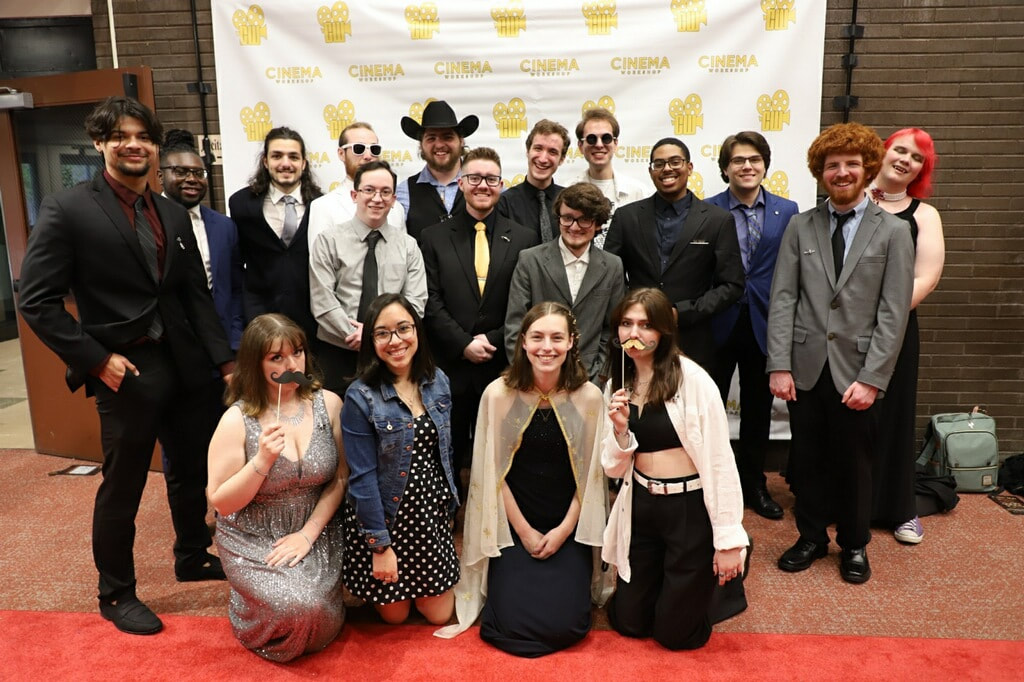
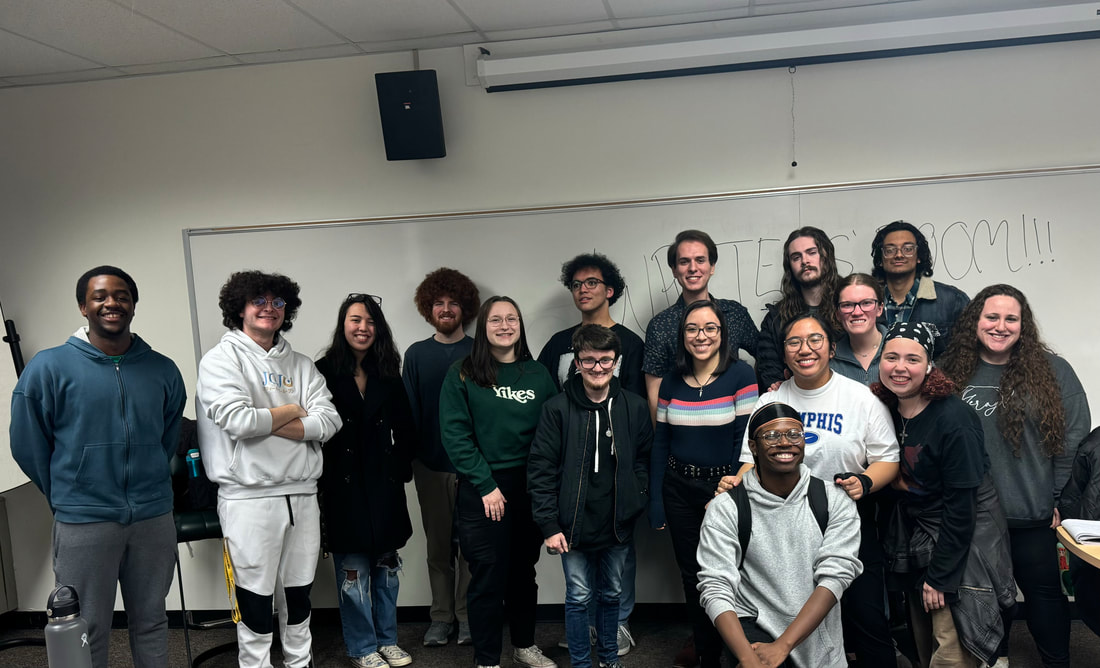
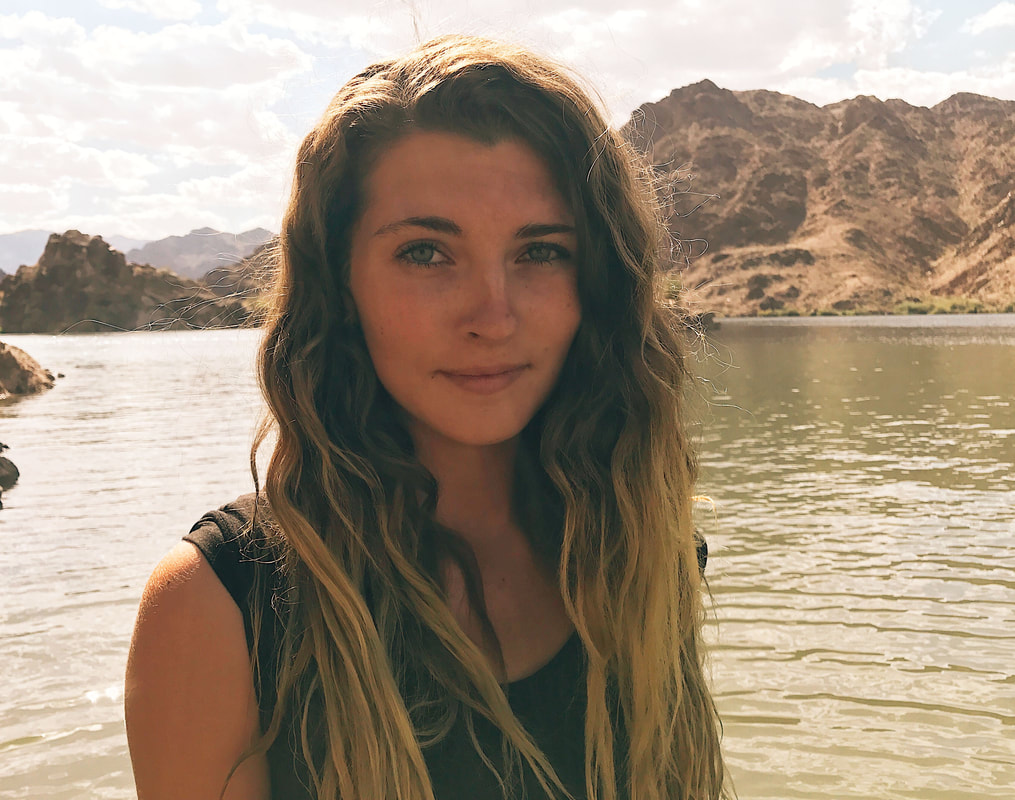
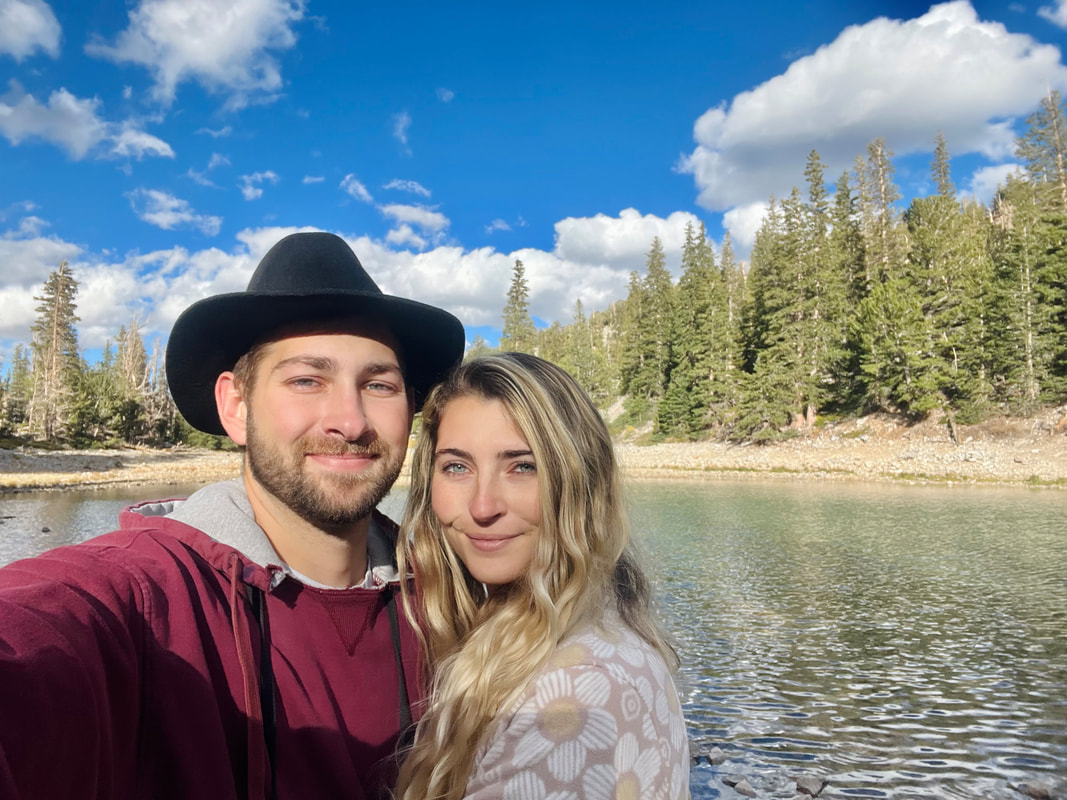
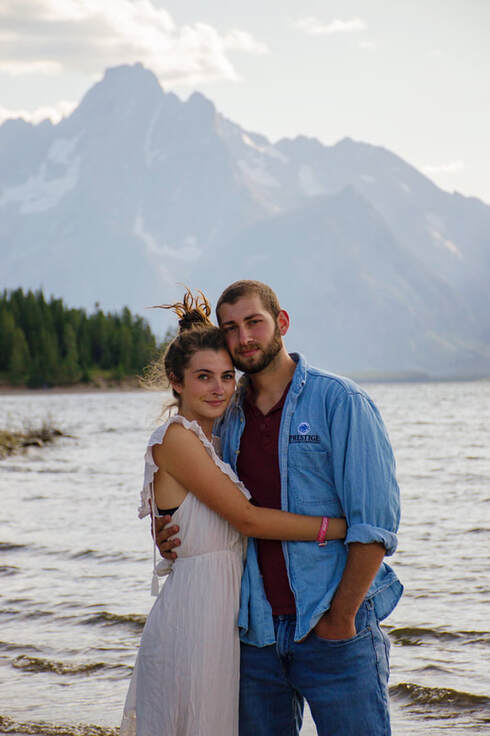
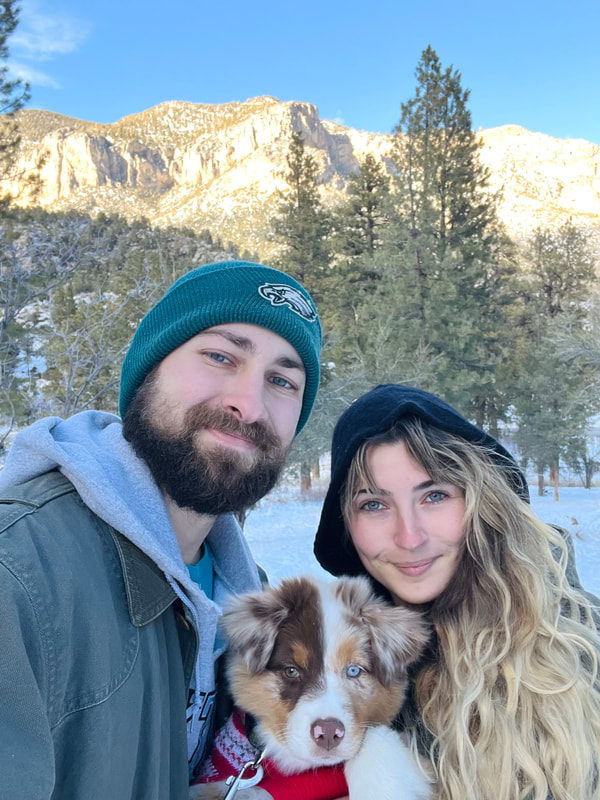

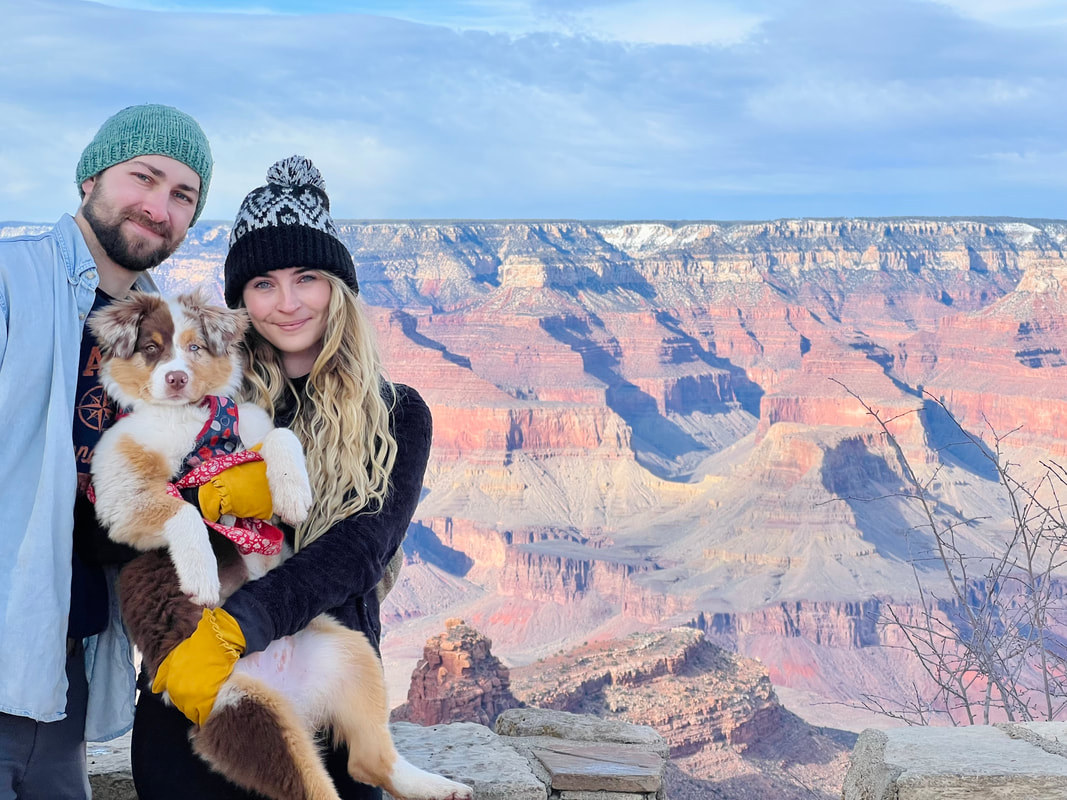
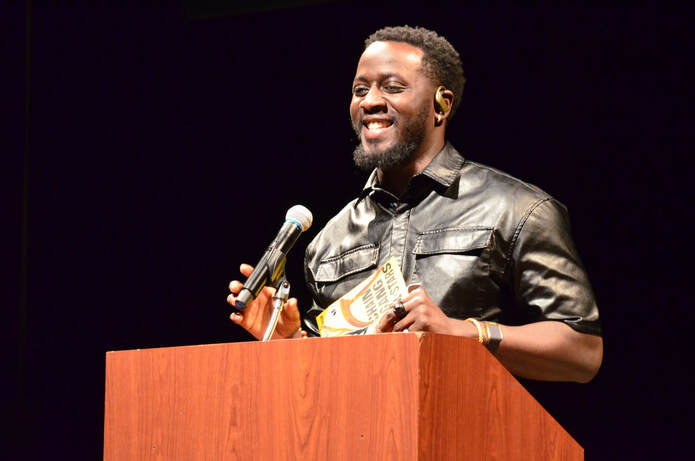
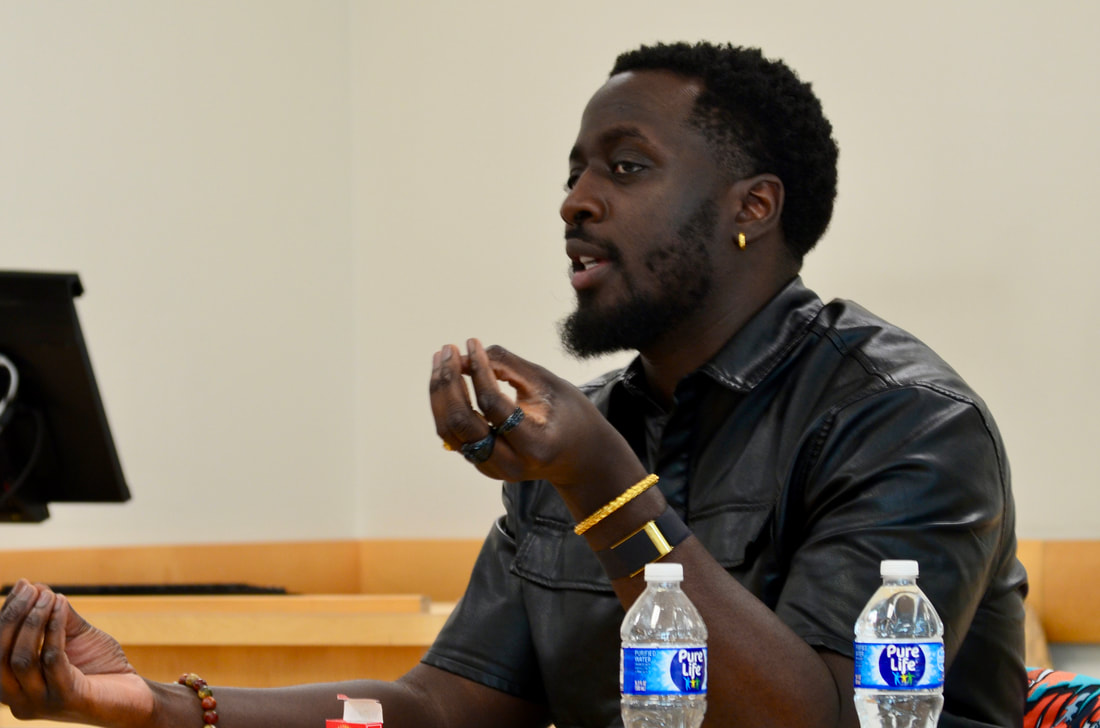
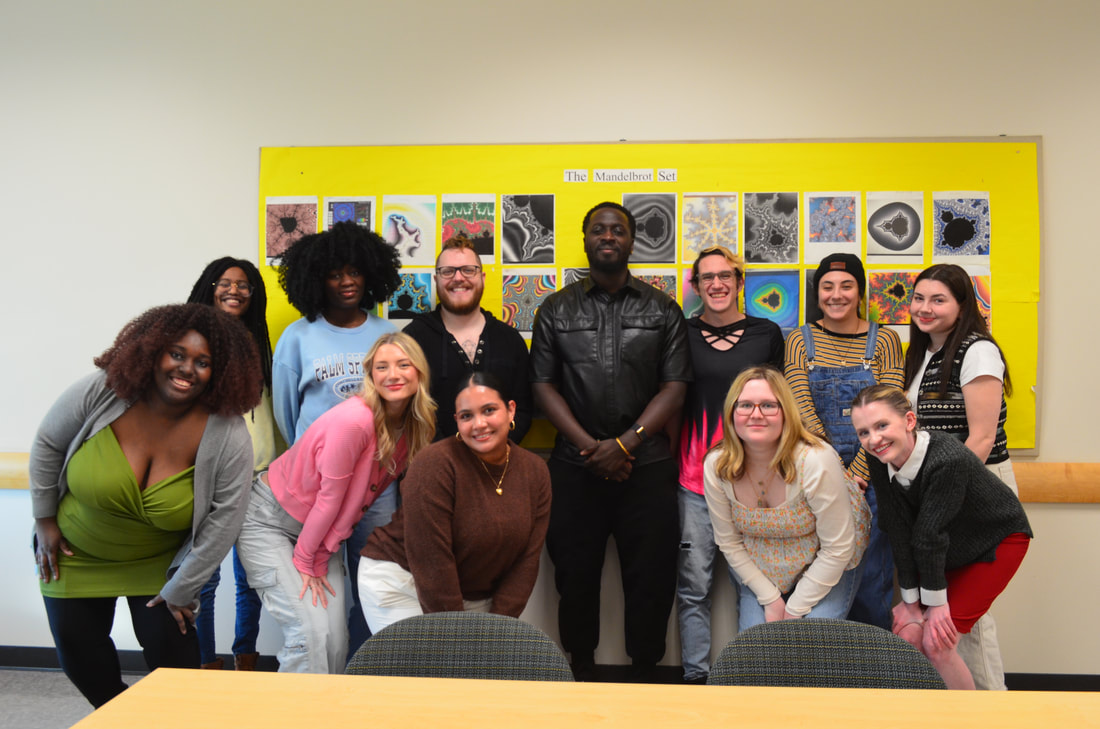
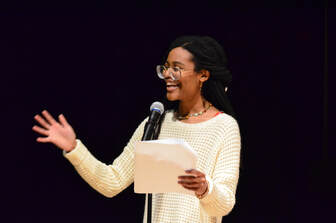
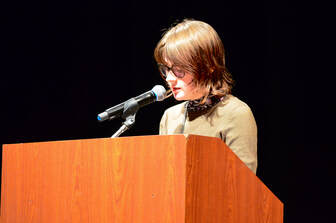
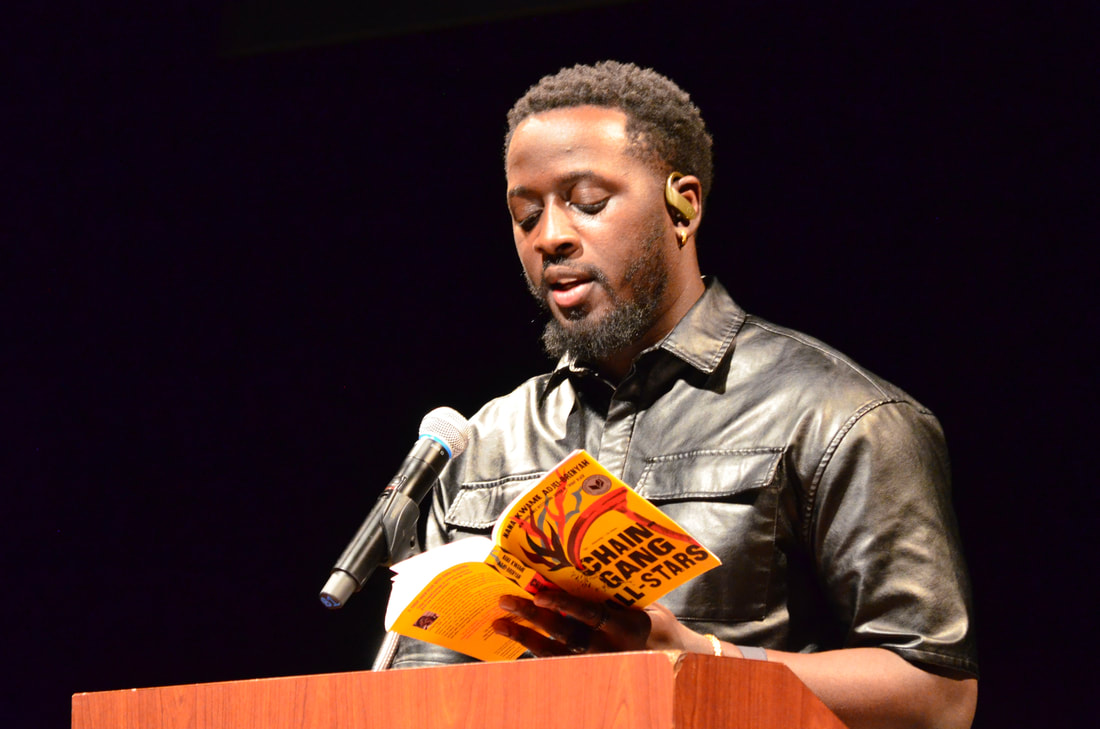
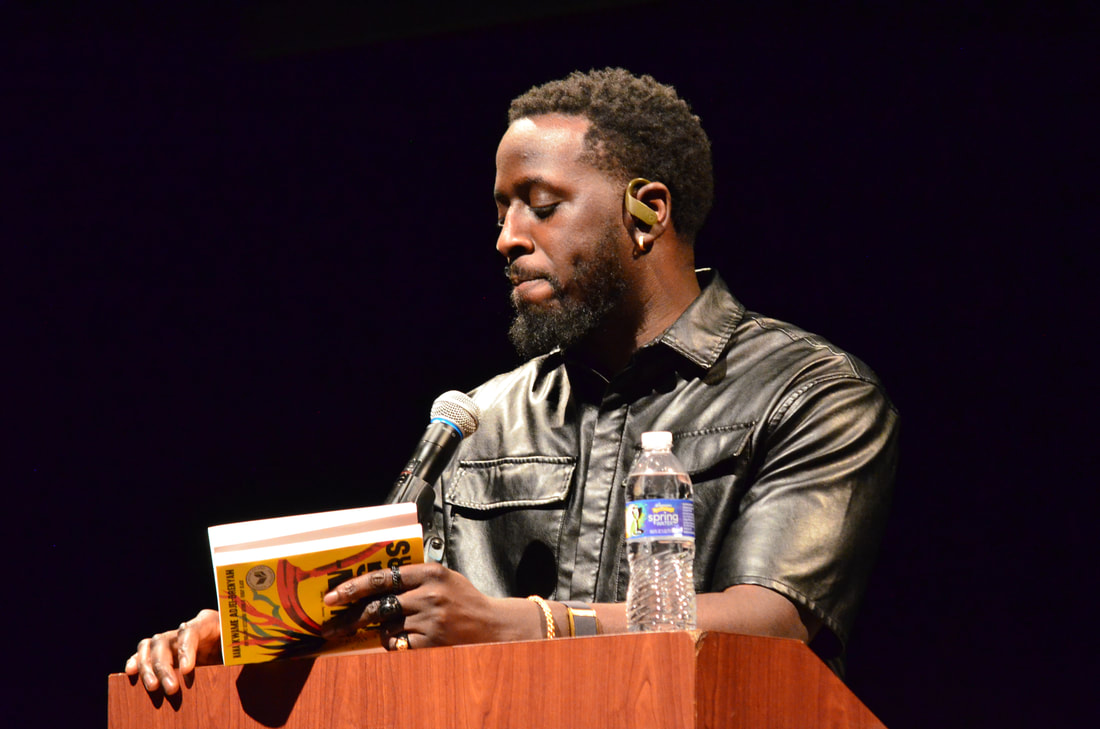
 RSS Feed
RSS Feed